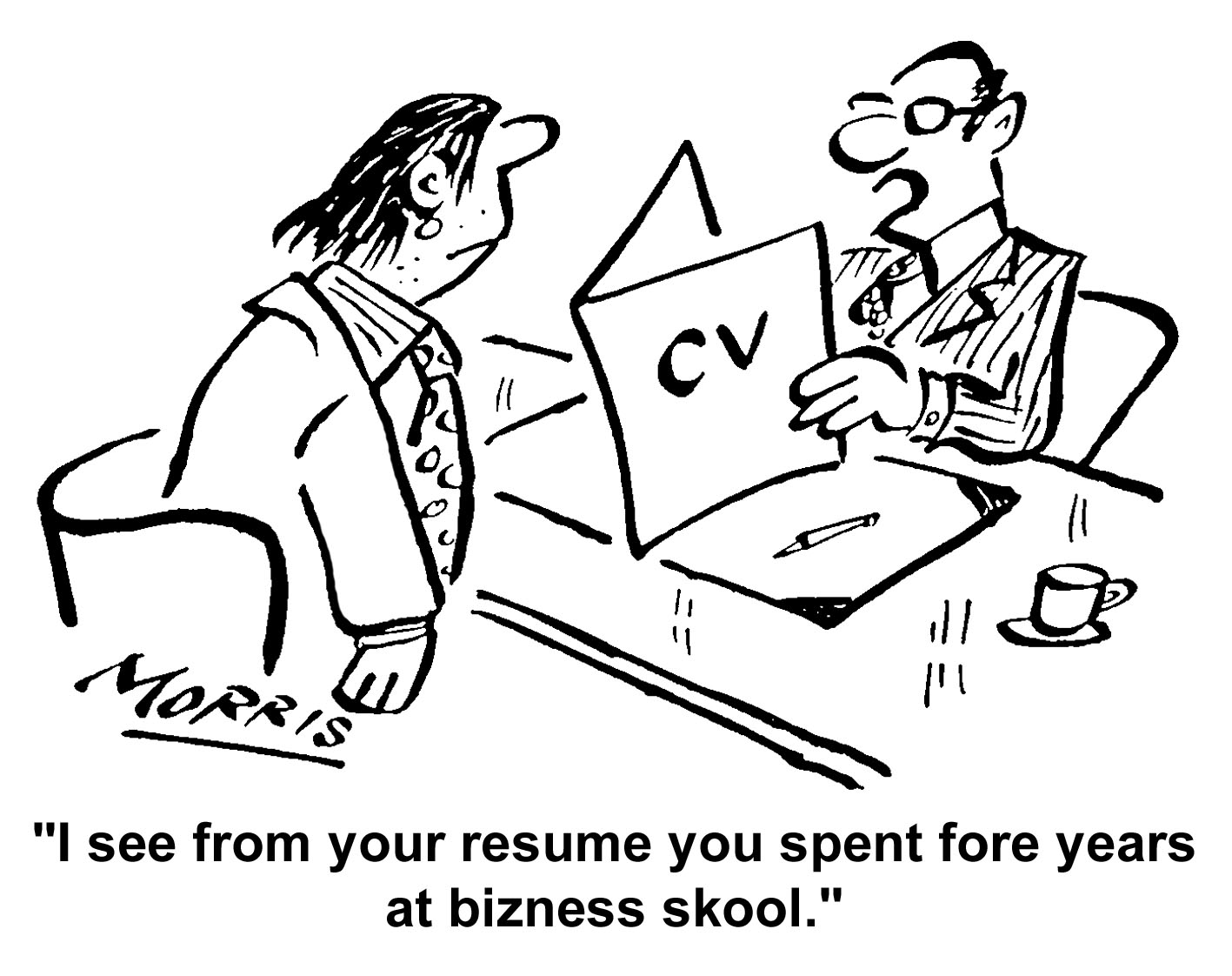Things Recruiters Don't Want to See in a CV or Resume

With over two decades of experience writing CVs, we’ve seen it all. We’re often told by clients that their CV must be one of the worst we’ve seen. However, that’s often not the case. From pictures of family pets (yes, really!), to embarrassing email addresses that haven’t been changed since the 90s, here are some other things we see in resumes and CVs that recruiters really will not want to:
Keyword Stuffing and White Font
In the early days of search engines, websites used keyword stuffing to help increase their ranking. We’ve started to see this more and more in CVs and resumes where candidates try to “trick” ATS systems. As an example, someone targeting an IT Engineer role might “hide” the words “IT Engineer” (and relevant keywords) multiple times in white text so it’s invisible to a human, but will show up in an ATS search.
We’re not going to lie – white text has sometimes been found to work. However, we strongly advise against it (particularly if applying for a role in ethics). If you are caught out, a potential recruiter might think you’re a cheat and that’s not a good impression to give. We spoke to a recruiter who knows how ATS systems work. They told us: “I can spot white text a mile off. I’ll then bin that CV for a candidate who isn’t trying to cheat the system”.
When candidates don't realise that the hidden white text in CV's still shows up on a spelling/grammar check :-) #recruitment #keywords
— Graeme Cox (@GraemeAtHead) August 13, 2015
Cliché Statements
Yes, a CV should be used as a sales tool and to promote your abilities. At any level of employment, a recruiter will simply assume that you’re “honest”, “hardworking” and “reliable” so you don’t need to mention those qualities. On the other hand, don’t overdo it – this is a tip the candidates on The Apprentice should take note of. Here is just a selection of their claims – there are more (lots more!):
- “Like the Tasmanian devil in the famous cartoon, I will torpedo my way through to the win.”
- “As a salesperson, I would rate myself as probably the best in Europe.”
- “I’m the cleverest person in any room I walk in!”
- “I truly am the reflection of perfection.”
When you lie on your CV just to get a till Job @BandQCareers #TheApprentice #memes #apprenticememes pic.twitter.com/nC8gDAqSN4
— Elizabeth Memes (@ElizabethAmemes) October 19, 2017
Unexplained Gaps in Employment
Transparency is the best policy when it comes to explaining gaps in a CV. Not explaining gaps is worse than trying to ignore them. Instead, give these periods an official "title". If you were training, say this. If you were on maternity leave, tell the recruiter. Maybe you were travelling or just took time out due to illness or the death of a family member? These are all good reasons for being out of work and can be discussed further in an interview situation.
Spelling Errors
This is one of the most obvious, but you'll be surprised how common it is! Proofreading your own work is difficult. Instead, ask a friend or family member to give your CV the once over.

Personal details
As we state in our article on writing a good CV, there’s no need to mention personal details, including: date of birth, marital status or inside leg measurements in a CV when applying for a UK-based position. This rule doesn’t apply in some areas, including applications in the Middle East, where it’s a requirement to mention your date of birth.
Inconsistent Dates
As you already know, accuracy is imperative when writing CV. Incorrect or inconsistent dates could confuse (or even frustrate) a recruiter. When scanning potentially hundreds of CVs, a simple error in dates could be the deciding factor in you not reaching the shortlist.
nothing like noticing a mistake on your CV when you've sent the application in...
— Lyndsey Jenkins (@teadevotee) October 18, 2017
Links to Social Media Profiles
Unless, you’re applying for a role in social media, there’s simply no reason to include links to your Facebook or Twitter profile.
While we’re on the subject, take a moment to read our article on unprofessional Facebook traits to avoid on LinkedIn (recruiters don’t need to see what went on during your recent holiday).
Going Back Too Far (or Not Far Enough) In Your Career
Ignore people who tell you to only go back ten years. This simply isn’t true. If the bulk of your recent experience is in IT Engineering and your early career was in sales, then by all means remove (or even just summarise it). However, if you’re an IT Engineer looking for a career change to get back into sales, that older experience is more important.
Hobbies
Unless you’ve done something extraordinary that could be a talking point in an interview, a recruiter won’t care what your golf handicap is, or that you enjoy reading. You can read more about including hobbies in a CV here.
"I have a creative background in breakdancing" - clearly been writing the wrong things on my cv #TheApprentice
— Hira (@bashir_hiraa) October 11, 2017
References
References aren't requested until a later stage of the application process. In addition, there's no need to mention "References Available Upon Request" at the bottom of your CV. A recruiter will already know this, and it makes space for much more salient information.
The Title, "Curriculum Vitae"
Again, a common one. A recruiter will already be aware they're reading a CV. All you need at the top of your CV is your name, contact details and URL to your LinkedIn profile (if you have one - which we recommend you do!)
You may also be interested in 5 Reasons Your CV was Binned.
CV Not Working?
The employment market is constantly evolving at a rapid pace. A CV that previously secured you an interview years ago might not be working for you in today’s market.
Send us your CV for a free no-obligation critique to find out what can be done to improve it.
